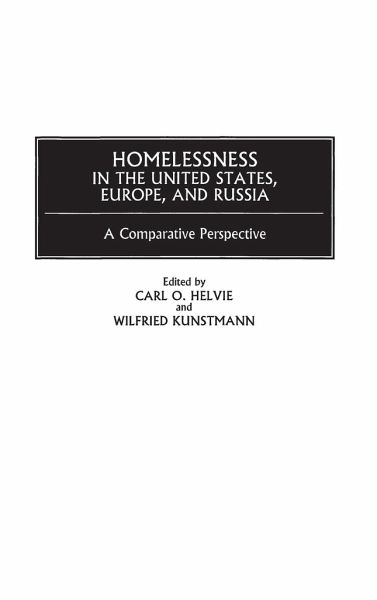
Homelessness in the United States, Europe, and Russia
A Comparative Perspective
Versandkostenfrei!
Versandfertig in 1-2 Wochen
88,99 €
inkl. MwSt.

PAYBACK Punkte
44 °P sammeln!
An examination of homelessness, its causes, trends, demographics and health concerns of the homeless in seven industrialized countries, including the United States, Germany, the Czech Republic, Denmark, England, Russia, and Spain.
The editors of this book draw upon professionals in seven industrialized nations to examine the prevalence, causes, trends, demographics, and health concerns of homelessness and to evaluate potential solutions. They also report on the resources available to the homeless by the public and private sectors in each of the seven countries studied; the United States, Germany, the Czech Republic, Denmark, England, Russia, and Spain. Also provided is a comparison of social welfare systems in industrialized nations with perhaps the most current and accurate statistics regarding Russia available in the literature. The two East European countries, the Czech Republic and the Russian Federation, represent the most radical changes, from a state to a free market economy with their social systems turned upside down. While the former socialist governments provided a system of universalistic care and control, the released uncontrolled free market forces have been eroding most social protection for the individual. Consequently, homelessness as a new phenomena affects those who are not able to compete in the free market economy. The editors tie the data and country-specific chapters together with a series of concluding chapters that include discussions of resources to prevent homelessness, financial resources for the unemployed, social welfare benefits for the indigent, access to health care and sickness benefits, affordable housing and housing policies, and public and private resources for the homeless.












